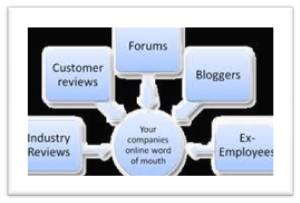ORM – Online Reputation Management
Definition
Online Reputation Management (ORM) is the act of monitoring, addressing or mitigating SERPs (search engine result pages) or mentions in online media and Web sphere content. ORM primarily involves tracking what is written about a client on the Internet, then utilizing sophisticated online and offline techniques in promoting positive and neutral content, while at the same time pushing down those links the sponsor (in most cases business or individuals) may not want to show when their name is searched.
Rather than working to raise link results with a particular search term in order to (ostensibly) generate more commerce or page views, the goal of ORM is to push already highly-ranked negative posts off the results pages so that they are seen by fewer people, thus creating a more positive results environment for the sponsor of the effort. ORM is the specialization in prevention and repair of online reputation threats, and has less to do with directly promoting businesses.
The term arose from a recognition of the importance that influencing how someone or something is perceived based on an internet search has to a business. As the amount of user-generated content on the internet grew, it began to affect internet search results more meaningfully, and the desire to change those results naturally followed.
Techniques
ORM is related to search engine optimization (SEO)and uses many of the same techniques. However, their goals differ greatly. Common ORM techniques include online promotional activity through new content creation, involvement in the social web sphere (through forums, blogs, social networking), promotion of existing positive content and building social profiles. Traditional websites and consumer reviews are also monitored. The material monitored can include both professional journalism and user-created content such as blogs and blog comments. More difficult, but nonetheless relevant techniques can include formal “take-down” requests to try to convince site managers to remove negative content, and finally, litigation.
Proactive reputation-building techniques can include responding immediately to public criticism stemming from unannounced changes to a product’s capabilities and features; offering free products to prominent reviewers; and writing positive comments and reviews in the guise of customers posting to online forums or review sites. However, most sites attempt to screen out such covert plugs, and rate their contributors based on how highly others value their contributions.
What should you do?
We work with Helmword. Their team consist of a highly experienced group of people knowing all about the industry. EC is advisor to the company and helps building and developing the concept.
Ask us or go directly to their Home Page for assistance.



